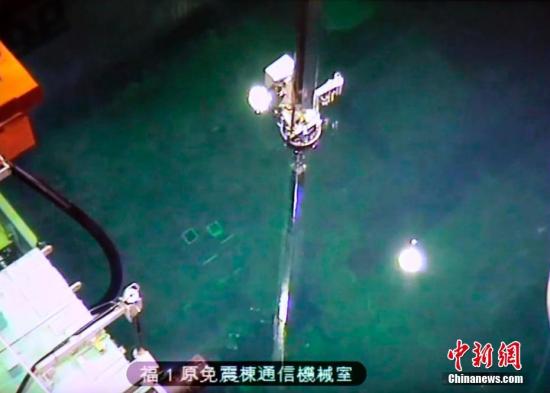China News Service, January 29. According to Kyodo News, Japan’s Tokyo Electric Power Company said on the 28th that the capacity of the storage tanks for storing treated water in the Fukushima Daiichi Nuclear Power Plant will reach its limit around the summer of 2022. It may be postponed until after the autumn of the same year.
TEPCO stated that the reason is that nuclear sewage countermeasures have been advanced and the amount of precipitation last year was less.
At around 8:50 am on April 15, 2019, local time, a remotely controlled fuel processor was used to seize an unused fuel in the Fukushima nuclear power plant pool.
Picture source: Oriental IC copyright works please do not reprint
According to the report, Akira Ono, the top person in charge of TEPCO's Fukushima nuclear reactor obsolescence promotion department, revealed the news at a press conference.
The specific full time estimate will be checked in the future.
TEPCO said that through measures such as reducing rainwater flowing into the plant, the average daily nuclear sewage generated in 2020 is about 140 tons, which is less than expected.
The government and Tepco’s reactor scrapping schedule set a goal to control the amount of this generation to about 150 tons by 2020.
It is said that at Fukushima Ichi Nuclear Power Plant, nuclear sewage has continued to increase under the influence of water injection designed to cool the molten nuclear fuel (fuel fragments) remaining in the buildings of units 1 to 3, inflowing groundwater and rainwater.
TEPCO uses the "Multi-Nuclide Removal Equipment" (ALPS) to purify the highly active radioactive substances contained in nuclear sewage, and the treated water is stored in storage tanks.
There are currently 1.24 million tons.
The Japanese government has discussed discharging the treated water into the sea for disposal, but the finalization of the policy has been delayed.
TEPCO stated that it will take about 2 years for the preparation work such as construction to be discharged into the sea.
On March 11, 2011, the "March 11" Great East Japan Earthquake occurred in Japan, which triggered a huge tsunami and the Fukushima nuclear disaster, killing tens of thousands of people.
Regarding the treatment of nuclear sewage accumulated in the Fukushima nuclear power plant, the Japanese government has previously stated that it is safe to discharge the polluted water from the Fukushima nuclear accident into the ocean, and emphasized that the risk of affecting human health is “very small”.
However, the "Asahi Shimbun" agency conducted a public opinion survey on Fukushima's nuclear sewage discharge from November to December 2020, and showed that 55% of the people interviewed opposed the discharge of nuclear sewage into the sea.

